Jean Pierre Nsame: The Indomitable Lions’ Other Number 9
It isn’t just a jersey number. It comes with loads of swag but carries the weight of over 28 million people; kit numbers have the feeling of an apple dropping straight down the head of a hungry pedestrian.
Numbers have been handed to participating countries of the FIFA world cup, Cameroon inclusive.
Cameroon holds jersey numbers with such pride and high esteem. The indomitable Lions have had some top players donning jersey numbers and a mythical jersey number could easily roll back the years.
A keeper with number Nkono’s number 1 should be unbeatable, a holding midfeilder with Foe’s 17 must be exceptional, and an attacking mid with Theophile Abega’s 14 should be extremely fleet-footed. Some of these numbers have been passed on successfully, but others still await successors or a reincarnation of initial owners.
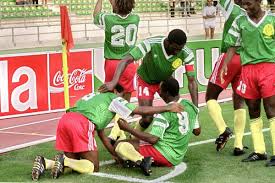
29-year-old Young Boys forward, Jean Pierre Nsame has been handed the jersey number 9 for the Qatar 2020 World Cup. Cameroon’s most talked about superstars rocked the number 9, and stepped up on the big stage when needed. Jean Pierre Nsame is expected to follow the trend.
Roger Milla & Samuel Eto’o, Indomitable Lions’ Unstoppable 9’s
Italy 1990 marked the rebirth of Africa’s greatest player. A previous selection as African Footballer of the Year, Roger Milla was to lead his nation of Cameroon to heights never before achieved by a side from the continent in the World Cup.
While all this is worthy of recognition and praise, the item that makes his achievements all the more remarkable is the fact that when all this transpired, he was 38 years old.
Having retired from international play in 1987, Milla was the marquee player in a Cameroon side that had competed in the 1982 World Cup in Spain but was eliminated in group play. He was a dedicated servant of the Indomitable Lions but hung his boots up at 35 years of age.
When Cameroon qualified for Italy in 1990, Milla, at age 38 and amid much controversy, was included in the squad at the insistence of president Paul Biya.
The Lions burst onto the scene with an opening day upset of defending champions Argentina in a front of a worldwide audience. Despite playing down two men at the final whistle, Cameroon had shocked the world and put African football on the map.
In the next three games, the Lions won their group and then defeated Colombia to advance to the quarterfinal stage; going further than any other African team in World Cup history at the time (Senegal, Japan/ Korea 2002/ Ghana 2010). Milla scored all four goals (all as a substitute) in those three games.
In the quarterfinal, he did not score, but was the architect of both Cameroonian goals in their defeat to England, 3-2, that saw them knocked out of the tournament.
Milla went on to be named in the All Tournament Team, and even hung around for another four years to participate in the US in 1994. While on American soil, he became the oldest player to participate, and more importantly, score in a World Cup.
The heart and soul of the Cameroon’s side of the ’80s and ’90s, Milla went on to be named the African Footballer of the 20th Century. Lofty heights for a man, especially considering that the award was earned based on his achievements after reaching the age of 38!
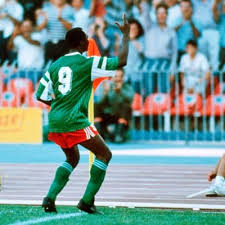
As a player, the pedigree was there, but the inspiration came much later; at the end, as a matter of fact.
To this day, the post-goal celebrations of his days of glory in Italy are still mimicked worldwide.
Samuel Eto’o
Eto’o earned his first cap with Cameroon one day before his 16th birthday on 9 March 1997, in a 5–0 friendly loss to Costa Rica. In 1998, he was the youngest participant in the 1998 FIFA World Cup when he appeared in a 3–0 group stage loss to Italy on 17 June 1998, at the age of 17 years and three months. Eto’o scored his sole goal of the 2002 FIFA World Cup when he netted the game-winner against Saudi Arabia during the group stage on 6 June 2002, which was Cameroon’s only win of the competition.
Arguably Cameroon’s biggest export, Eto’o was a part of the squads that won the 2000 and 2002 Africa Cup of Nations, and was a gold medalist at the 2000 Summer Olympics. At the 2003 FIFA Confederations Cup, in which Cameroon finished as runners-up, he scored in a 1–0 group stage upset of Brazil on 19 June.
The Ex Barca man captained cameroon to a 4–1 aggregate win against Tunisia in the 2013 World Cup play-off to secure World Cup qualification.
Later In June 2014, Eto’o was selected in Cameroon’s squad for the 2014 FIFA World Cup, becoming the third African to participate in four tournaments after compatriots Jacques Songo’o and Rigobert Song. Every good thing comes to an end, as Eto’o announced his retirement from international competition after the 2014 World Cup.
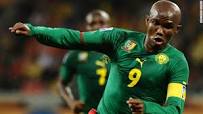
Both Eto’o and Milla coughed out an astonishing 84 goals; Eto’o 56 and Milla 28, during their playing days for the indomitable Lions.
Milla now occupies himself with an ambassadorial role, while Eto’o is set to celebrate one year, as president of the Cameroon football federation. These two poachers of different generations will be out watching when Jean Pierre Nsame takes the number 9 to Qatar.
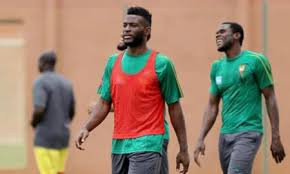
Nsame has blown possible all the statistics at club level, with over 146 goals across 6 clubs, with 9 goals already in the halted Swiss super league.
However, the poacher is yet to blossom for country and this could just be a chance to get vindicated. Nsame has 4 caps for Cameroon without a single goal scored so far

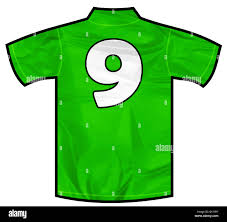

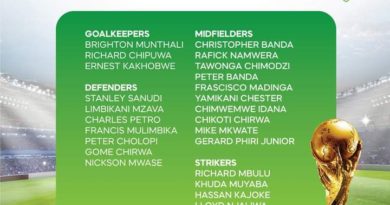

Pingback: how long does a ecstasy pill last
Pingback: buy botox without a license
Pingback: best material for durable cornhole wraps
Pingback: ห้องพักรายวัน ใกล้คู้บอน
Pingback: magic mushroom dispensary denver
Pingback: ราคาบอลวันนี้
Pingback: Bathroom Remodeling Service in Las Vegas
Pingback: dultogel gacor
Pingback: lost vape
Pingback: แทงหวยออนไลน์ เว็บเจ้ามือ
Pingback: bdsm videos
Pingback: ทางเข้าpg
Pingback: เหตุผลที่ต้องร่วมสนุกกับเว็บ money 168 slot
Pingback: Joker Slot ฝากถอนวอเลท
Pingback: รั้วสำเร็จรูป
Pingback: big bass splash slot
Pingback: https://famososonline.com.br/mostbet-huquqi-8/
Pingback: Clear